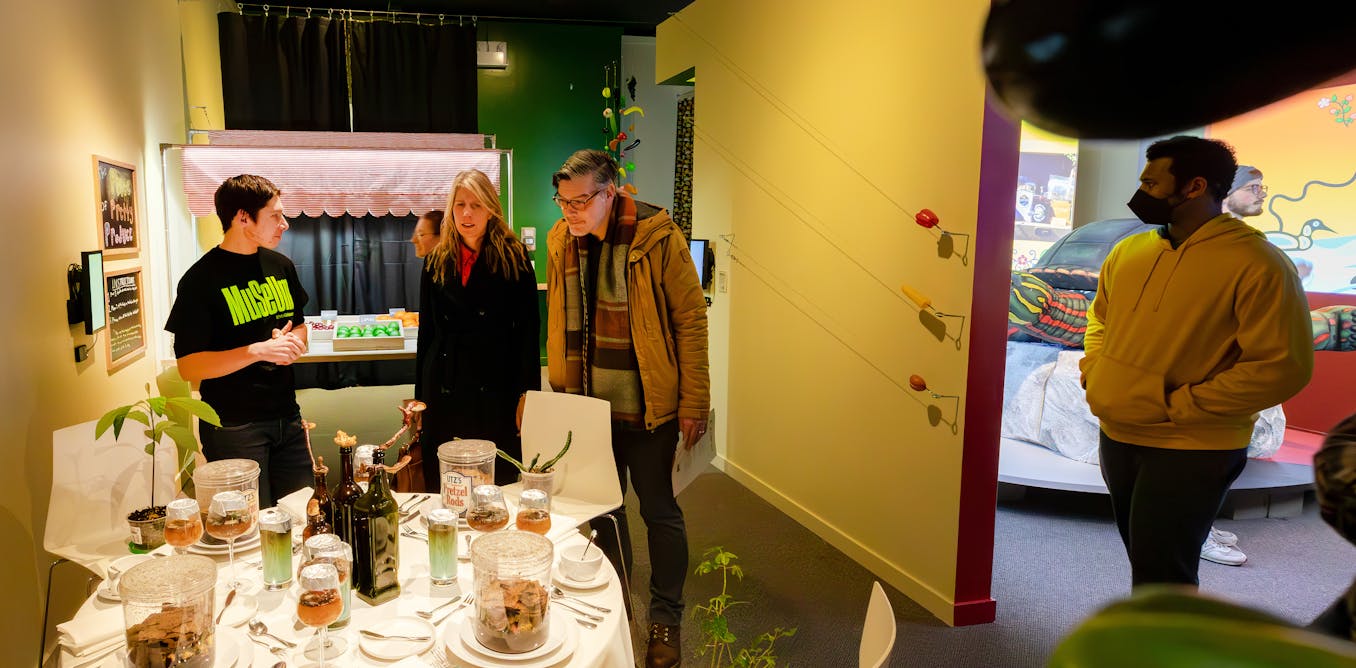A desire to “try something hard” is what led legendary television composer Mike Post to make the first all-originals albums of his 60-year career.
Message From the Mountains & Echoes of the Delta, which came out in April, was just that for the composer. Post was part of the Wrecking Crew as a teenager, won the first of his five Grammy Awards at age 24 and has a résumé of themes and scores (literally scores of ’em) that includes The Andy Williams Show, The Rockford Files, Hill Street Blues, the Law & Order franchise and The Greatest American Hero (several of which won Grammys and resulted in singles that hit various Billboard charts). He’s also produced and co-produced a few albums, including Dolly Parton’s 9 to 5 and Odd Jobs and Van Halen III, along the way.
“It’s not time consuming, but it’s what I’ve been doing all these years, making records or producing other people,” Post tells Billboard. “My day job, I work around the TV season; I go to work in September and I’m off the end of May. So I’ve just been busy with other people’s stuff.”
The Message project, Post says, was inspired by a drive through the desert during the early days of the pandemic. “I’m down a Spotify hole, and I’m listening to bluegrass,” Post recalls. “This idea struck me, ‘I wonder if anybody’s really tried to do a big piece with a five-piece bluegrass band and an orchestra.’ And I thought, ‘that would be really hard, because bluegrass players don’t read (music) and orchestras don’t jam, so how do you get them to talk to each other?’ Then I kinda laughed at myself; ‘C’mon, you haven’t done anything hard in so long.’ Not that making music for television or doing a score every week for show is easy, but it’s right there for me, it’s intuitive. So I thought, ‘Y’know, you’re the guy who did “Classical Gas” as an arranger and a producer when you were 23. You can do this. Get to work!’” (That single, performed by Mason Williams, hit No. 2 on the Billboard Hot 100 and won three Grammys.)
Post built Message from short pieces of music composed on a drafting table at home. As he proceeded, he expanded his vision to include blues into the mix as well, though that portion of the piece’s second half also touches on prog rock and jazz fusion. The resulting 25-track work includes players such as banjoist Herb Pedersen, fiddler Gabe Witcher, dobroist Mike Witcher and Patrick Sauber on guitar and mandolin from the bluegrass side; and on the blues side, it includes guitarists Sonny Landreth and Eric Gales, bassist Abe Laboriel Sr. and drummer Abe Laboriel Jr. and keyboardists Robert Turner and Jon O’Hara. Amy Keys provides vocals as well as the album’s introductory spoken-word piece.
The orchestrations, meanwhile, were done over two days with an 80-piece ensemble Post assembled on the Sony scoring stage in Culver City, Calif., after pandemic restrictions lifted. “That was jaw-droppingly satisfying,” recalls Post, whose television pieces are usually assembled with synthesizers, samples and other technology. “Literally in the first two or three chunks we recorded I was like, ‘Holy sh-t, these people are players!’ They had no problem with the time. They had no problem taking licks that are not classical, that are rhythm section oriented, bluegrass or blues, and playing the hell out of them. I was blown away, (it was) more than I could have hoped for.”
Message begins with a, well, message — written by Mark Wilding (Scandal, Grey’s Anatomy) and narrated by Keys — about American immigration from Europe, Ireland, Latin America and Vietnam and pointing out that “getting to the United States has never been for the faint of heart.” It wasn’t something Post anticipated, but the Pan-American approach of the piece made it an appropriate perspective for the music.
“(The album) is about how this country is so different because of its diversity, because of where everybody came from and how much they gave up to get here,” Post explains. “Art reflect life, always — that’s cliché, but it’s true. Do we really care about our fellow man…or are we just selfish? These are complex problems, and with no simple answers. We’ve really got to look to our humanity to figure out what’s right and what’s proper.”
With Message out, Post says “there are some discussions” about presenting it live but no firm plans yet. “I don’t have that performance gene,” he acknowledges. “I don’t have that thing where I’m dying to go out and play in front of an audience. However, these pieces are pretty unusual, and if there is an audience that wants to see them live, I’m interested. It would be very hard to do — and probably very expensive — but it would be worth doing because it’s so unusual.”
The endeavor has also whetted Post’s appetite to do more work of his own. He mentions blending Middle Eastern “fierceness” with “an aggressive rhythm section,” or delving into Irish flavors with an orchestra. “There are other genres that would be interesting,” he says, “and I’ve just scratched the surface of these two lanes, bluegrass and blues. There’s a lot more melody and harmony and rhythm where that stuff came from, so maybe I’m not done.”

The post “Why Legendary TV Composer Mike Post Decided It Was Time to Make an Album of His Own” by Joe Lynch was published on 06/07/2024 by www.billboard.com




































